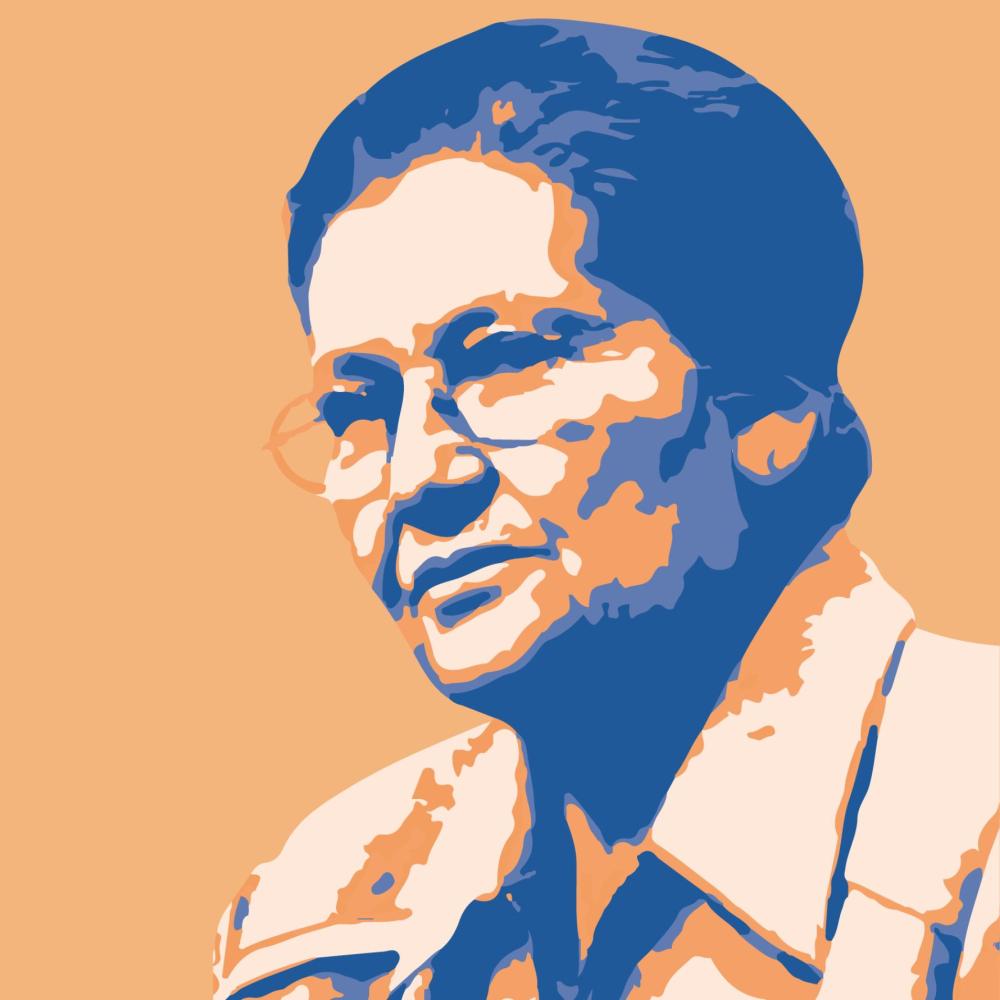

Simone VEIL (°1927 - 2017)
Profession: Politician
Nationality: French
Why an honorary doctorate?
In 2007 Simone Veil was awarded an honorary doctorate by VUB for the courage and tenacity with which she pursued her convictions throughout her life.
Dehumanised, yet not
The horror of the concentration camps grabbed her soul, but didn’t break her. Out of the injuries grew the ideal of never allowing humanity to be dehumanised again. Veil defied the sometimes buffeting headwinds on the abortion law issue, continuing to speak for many voiceless ones. Defending humanism and the love of Europe without losing objectivity and wisdom: it bears witness to a lived vision that VUB continuously propagates.
Simone Veil experienced the abhorrent savagery that typified a concentration camp at first hand. She lived through the horror and saw how indoctrination hacked every shred of decency out of the human mind. She gave the horror no more power than it already had and rebelled mentally. That there, where evil takes place in all its forms, it must never compromise human dignity and respect - for oneself and others.
Feminist symbol
Even as someone who saw abortion as a last resort, she would rather see it legalised and safe than illegal and dangerous.
Minister of Health
She campaigned for easier access to contraceptives and helped legalise abortion.
"It is here that the will must resurface for a world based on respect of man and his dignity."
About her career
Woman for Europe
13 July 1927. Simone Annie Liline Jacob is born into a Jewish family in Nice, France. Her father is an architect and she grows up in the bourgeoisie. Religion is far away from her realities. In an interview, Simone later states that she would never have known that she was a Jewish woman if the Second World War had not made that terribly clear to her.
The war begins when Simone is 14. Her father had been a soldier during WWI. He is deeply offended that Marshal Pétain, who runs the German protectorate in France from Vichy and was a hero during the First World War, introduces anti-Jewish legislation. But father Jacob is dutiful and correctly states that his family is Jewish.
In 1943, the previously free zone comes into the hands of the Germans, and one evening in March 1944, Simone is stopped for a check. Her false identity card lets her down and she is arrested. The Gestapo discover the rest of the family and take Simone, her mother, brother and one sister to the internment camp in Drancy, France.
In early April, she is put on a transport with her mother and sister to Auschwitz-Birkenau (Poland) Only the Jacob daughters - one sister is in the resistance - survive the horror of the war.
1945. Simone goes to study in Paris and falls in love with fellow student Antoine Veil, also a Jew, whom she marries in 1946. Since Antoine is a diplomat, the Veil family, which now has five members, moves to Wiesbaden. They regard Nazis and Germans as separate groups and early on advocate Franco-German rapprochement.
It is not Simone’s nature to be the dutiful housewife. She wants to be a lawyer, but her husband does not think that is a job for a mother. Because lawyers are looked down upon in Antoine's circles, they compromise: the magistracy. At Justice, she is responsible for prisons. With her own experiences forever burned into her mind, she is committed to better treatment of prisoners.
The Veil family are politically aware. Simone tends to the centre-left; she considers herself a liberal and turns her nose up at Charles de Gaulle. When Pompidou becomes president, her career - and that of her husband Antoine - can really take off. After Pompidou's death, Giscard d'Estaing takes over the helm of France. Under his authority, Prime Minister Chirac nominates Simone as Minister of Health. She is the first woman to hold this post.
Minister Simone Veil campaigns for more opportunities to obtain contraceptives. She makes sure that a bill to legally allow abortion gets the green light. Even if she considers it an exception, a last resort: it is better to do it legally and in safe conditions. At the beginning of '75, the “Veil law" actually became law. Simone is at once France's most famous minister and the symbol of feminism.
It is 1979. For the first time, the citizens of the European Community elect the Members of the European Parliament themselves. Veil is the first woman president there until 1982 and continues until 1993. There is no doubt about her pro-European leanings. After the parliamentary elections of the same year, Veil becomes Minister of Social Affairs and Health one more time.
Simone Veil continues to serve on the Constitutional Council and chairs the Foundation for the Memory of the Shoah, set up to ensure that the persecution of Jews in the Second World War would never be forgotten. In 2007, she resigns from both positions and starts writing her memoirs.
That same year, she surprises friend and foe by expressing her support for the ultra-conservative presidential candidate Sarkozy, despite her outspoken liberal stance.
In June 2017 Simone Veil says goodbye to the earth. Her funeral is a national ceremony at which President Macron speaks. Together with her husband, she finds peace in the Paris Panthéon, where famous Frenchmen are in their eternal sleep.
From European history
After surviving the concentration camps, she worked her way up to Minister of Health.
1981: International Charlemagne Prize Aachen
A prize for contributions to European unification.
1984: Four Freedoms Award
Freedom of speech and expression, freedom to worship a god, freedom from want, freedom from fear.
What is an honorary doctorate?
VUB has awarded honorary doctorates every year since 1978 to personalities from the most diverse backgrounds who have made a remarkable contribution to their field and to society. From this solemn moment of recognition, they bear the honorary title of Doctor Honoris Causa of VUB.